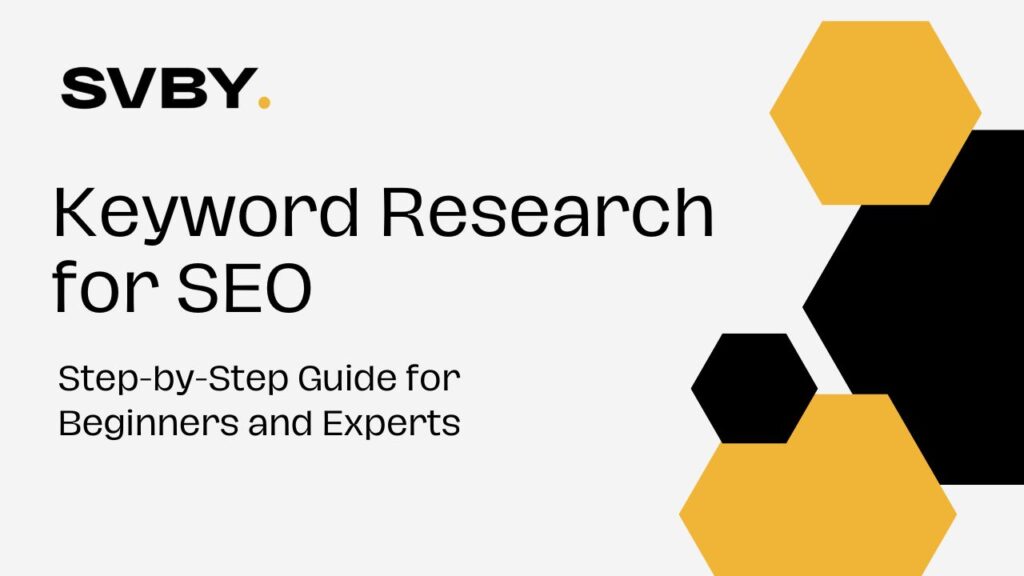Artificial intelligence (AI) refers to machines’ ability to execute tasks that would ordinarily need human intelligence, such as learning, thinking, and decision-making.
AI is revolutionizing the digital world, allowing businesses to provide more personalized, relevant, and engaging customer experiences across multiple channels and platforms.
Artificial intelligence technologies have been dubbed “the new electricity” that will transform industry. In many ways electricity altered industries such as manufacturing and infrastructure over the last century, and AI is poised to significantly disrupt and extend possibilities for search engine optimization in the coming years.
Keeping up with the newest AI technologies is critical for firms hoping to reap the rewards. Those who fail to keep current risk missing out on important possibilities to streamline operations, reduce costs, enhance innovation, and gain a competitive advantage.
By 2024, hyper-automation technologies that combine AI, machine learning, and automation will control business activities.
Some important sectors ready for AI-driven revolution include:
- Marketing and sales: AI is transforming lead generation and campaign analysis through predictive analytics, scalable customization, and on-demand content creation. Alexa and other voice-enabled assistants are already handling requests that were formerly handled by sales representatives.
- Finance: By automating mundane operations such as invoice processing and reconciliation with intelligent document processing, workers can be freed up to undertake more valuable work. Pattern recognition helps to improve fraud detection accuracy.
- Supply Chain: Artificial intelligence provides precise demand forecasts, real-time inventory optimization, and delivery coordination. This improves efficiency and reduces waste for global shipments.
- Healthcare: Medical AI assistants use patient history and symptoms to improve diagnosis. AI also accelerates new drug discovery by screening combinations. Robots now assist surgeons with microprecision.
What about SEO?
AI has a huge impact on search engine optimization (SEO).
Search engine optimization (SEO) is the process of enhancing the quality and quantity of organic traffic to a website, hence raising its relevance and authority for search engines and visitors.
According to a Hubspot survey, 75% of bloggers/SEO professionals believe AI/automation solutions will be able to perform the majority of SEO-related jobs autonomously by 2024.
With 70% of respondents agreeing that AI and automation solutions can help them improve their website for SEO more efficiently, AI-powered tools will become more widespread when it comes to organic content optimization.
We are currently at a critical juncture in the evolution of emerging technologies that have the potential to alter the boundaries of biological visibility.
SEO is a dynamic and expanding field that demands ongoing adaptation and creativity to meet the changing needs and habits of online audiences, as well as the algorithms that serve them.
While generative AI has the potential to improve content production efficiency, developing unique and competitive content is getting increasingly difficult.
Failing to monitor AI progress has substantial risks as competitors strive to integrate cutting-edge capabilities. Outdated technologies and methods are easily rendered inefficient. Talent gaps arise as required skills rapidly evolve. Without prompt action, the opportunity to responsibly use AI declines.
This post will provide insight into how AI is expected to shake up the SEO market by 2024, offering light on the impending search change while answering important issues about implementation.
So, prepare to turn the switch and shine a new light on SEO.
The Current State of SEO
Traditional SEO has focused mainly on keyword tracking, link creation, and manual rank monitoring. However, these solutions frequently fail to capture user intent, provide customization, or respond to Google’s ongoing updates. The limits make it difficult for marketers to interact with audiences and acquire attention.
The condition of SEO in 2023 and beyond is both exciting and daunting, forcing SEO professionals to be more innovative, nimble, and data-driven than ever before. By embracing the latest technology, trends, and best practices, you can assist your brand in meeting its objectives and staying ahead of the competition.
Can AI directly impact SEO?
Yes, artificial intelligence can have a direct impact on search engine optimization.
AI-powered search algorithms have the potential to significantly improve the crawling, indexing, and ranking of online pages, resulting in more accurate, tailored, and efficient searches.
It can also automate and improve keyword research and content optimization by comprehending semantic links between terms, analyzing search trends, and forecasting user behavior.
AI-powered technologies can help to optimize content, making it more relevant and interesting for users. Analyzing user activity can help identify the best-performing content and make recommendations to improve it.
Furthermore, by 2024, AI tools will have improved their ability to create and optimize content. AI’s role in content creation will grow from composing blog articles to developing video screenplays.
The Role of AI in SEO
AI has changed the way SEO strategies are planned and performed by providing more data, insights, and automation to SEO experts.
Here are some of the ways AI is influencing SEO:
- AI-powered search algorithms are regularly updated and improved to offer the most accurate and relevant results for each user query. These algorithms rank and display online sites based on user intent, location, device, behavior, and history.
- AI-generated content is created by combining natural language processing (NLP) and computer vision to produce text, photos, videos, or audio. This material can improve the quality, diversity, and freshness of the website’s content while also optimizing it for keywords, readability, and user engagement.
- AI-assisted optimization uses AI technologies and platforms to assess, monitor, and optimize the effectiveness and impact of SEO initiatives. These tools can assist you with keyword research, competitor analysis, content optimization, link building, technical SEO, reporting, and analytics.
AI is changing the game in SEO, allowing you to be more creative, efficient, and productive. By integrating AI, you may help your website achieve greater rankings, more visitors, and more conversions.
Best AI Tools for SEO
Why should your brand be left behind when AI-assisted optimization is on the rise?
Here’s a thorough list of the top AI tools for improving and optimizing your SEO approach.
- AlliAI: AlliAI enables customers to optimize their websites for SERPs in minutes. An important feature is Bulk Onpage Optimization, which generates site-wide optimization guidelines. The technology also pushes code updates down to specific pages.
- Surfer SEO: Surfer is an AI SEO program that streamlines content planning and creation workflows. It simplifies duties like competitor research, keyword optimization, writing, and content auditing.
- MarketBrew: provides A/B testing, SEO Team CRM, and Radar Plot Tool.
- KeywordInsights: KeywordInsights enables keyword discovery, useful clustering insights, and intent analysis.
- Frase: Frase provides a content brief generator, performance statistics, and SEO data augmentation.
- SE Ranking: SE Ranking offers a page change watch, website audit, and index tester.
- NEURONwriter: NEURONwriter includes built-in document management, AI templates, and content-suggesting features.
- Serpstat: Serpstat offers keyword extraction, AI editing and proofreading, and batch analysis.
- Outranking: Outranking provides an AI Content Wizard, data extractor, and keyword heatmap.
- DiiB: DiiB provides RankGuard, issue alerts, and a monthly snapshot.
It’s vital to realize that the efficiency of these tools will vary depending on your requirements and the type of your website. When selecting an SEO tool, always keep your goals in mind.
As previously discussed, artificial intelligence is poised to revolutionize search engine optimization. AI will revolutionize many parts of SEO, just like electricity did many years ago.
The AI landscape in 2024 will undoubtedly look very different from now. Companies that proactively prepare their data, processes, and people for impending upheavals, on the other hand, will be able to ride the tides of change seamlessly into brighter digital futures.
Those who embrace AI’s potential benefit from increased effectiveness and efficiency in reaching out to people. AI enhances, rather than replaces, human creativity; consider AI to be an electric guitar that requires a talented musician. When used correctly, it improves on already solid SEO.
Here are five critical things you can do right now to prepare for an AI-powered SEO future:
- Continuously learn about the most recent AI uses in SEO.
- Evaluate your technology and processes using AI benchmarks.
- Set company goals that fit with the AI tools under consideration.
- Train staff on AI-related skills, such as data analysis.
- Develop rules for quality control and ethical use of AI.
The winds of change are picking up speed quickly. However, being aware and proactive puts you on a steady road. Continue studying the technological world, conducting modest experiments, and learning by doing. Combine human ingenuity with AI’s sheer power for optimal results.
AI-powered SEO in 2024, when used wisely, has the potential to truly set you apart from the competition.
If you’re looking for the ideal content-writing company that combines AI innovation and human creativity, you’ve come to the right place.
We at Content Whale use words to express your brand’s narrative. We create content that resonates with your target demographic and, as a result, achieves high rankings.
Conclusion
The symbiotic relationship between AI and SEO has ushered in a new era of digital marketing, fundamentally transforming the landscape for businesses and marketers alike. AI’s ability to analyze vast amounts of data, predict user behavior, and adapt to evolving search algorithms empowers SEO strategies with unprecedented precision and efficiency. As search engines continue to prioritize user experience and relevance, leveraging AI technologies becomes imperative for staying ahead in the competitive online space. The dynamic nature of SEO requires continual adaptation, and AI serves as a driving force in this ongoing revolution. Embracing the synergy between AI and SEO is not merely a trend; it is a strategic imperative for those seeking sustained success in the ever-evolving realm of digital visibility and marketing. As we navigate the future of online presence, it is clear that AI’s impact on SEO strategies will be a defining factor in shaping the way businesses connect with their audience and optimize their online footprint.
FAQs
How does AI impact traditional SEO practices?
AI revolutionizes SEO by automating tasks like keyword research, content creation, and link building. It enhances the efficiency of these processes, allowing marketers to focus on strategy and creativity rather than manual tasks.
What role does machine learning play in SEO strategies?
Machine learning algorithms analyze vast amounts of data to identify patterns and trends, helping marketers make data-driven decisions. This technology improves the accuracy of keyword targeting, content optimization, and user experience, leading to better SEO results.
Can AI improve the personalization of content for SEO?
Yes, AI enables advanced personalization by analyzing user behavior and preferences. This information helps marketers tailor content to specific audiences, increasing engagement and improving SEO rankings. Personalized information improves the overall user experience.
How does AI impact the future of voice search optimization in SEO?
AI-powered voice recognition technologies improve the accuracy of voice search results. SEO strategies need to adapt to conversational queries, long-tail keywords, and natural language patterns. AI helps websites optimize content for voice search, making them more accessible to users relying on voice-activated devices.
What are the benefits of using AI-powered tools for SEO analytics?
AI enhances SEO analytics by providing real-time insights, predicting trends, and identifying opportunities for improvement. Automated analytics tools powered by AI can process and analyze large datasets faster than traditional methods, enabling marketers to make informed decisions and stay ahead in the competitive online landscape.








